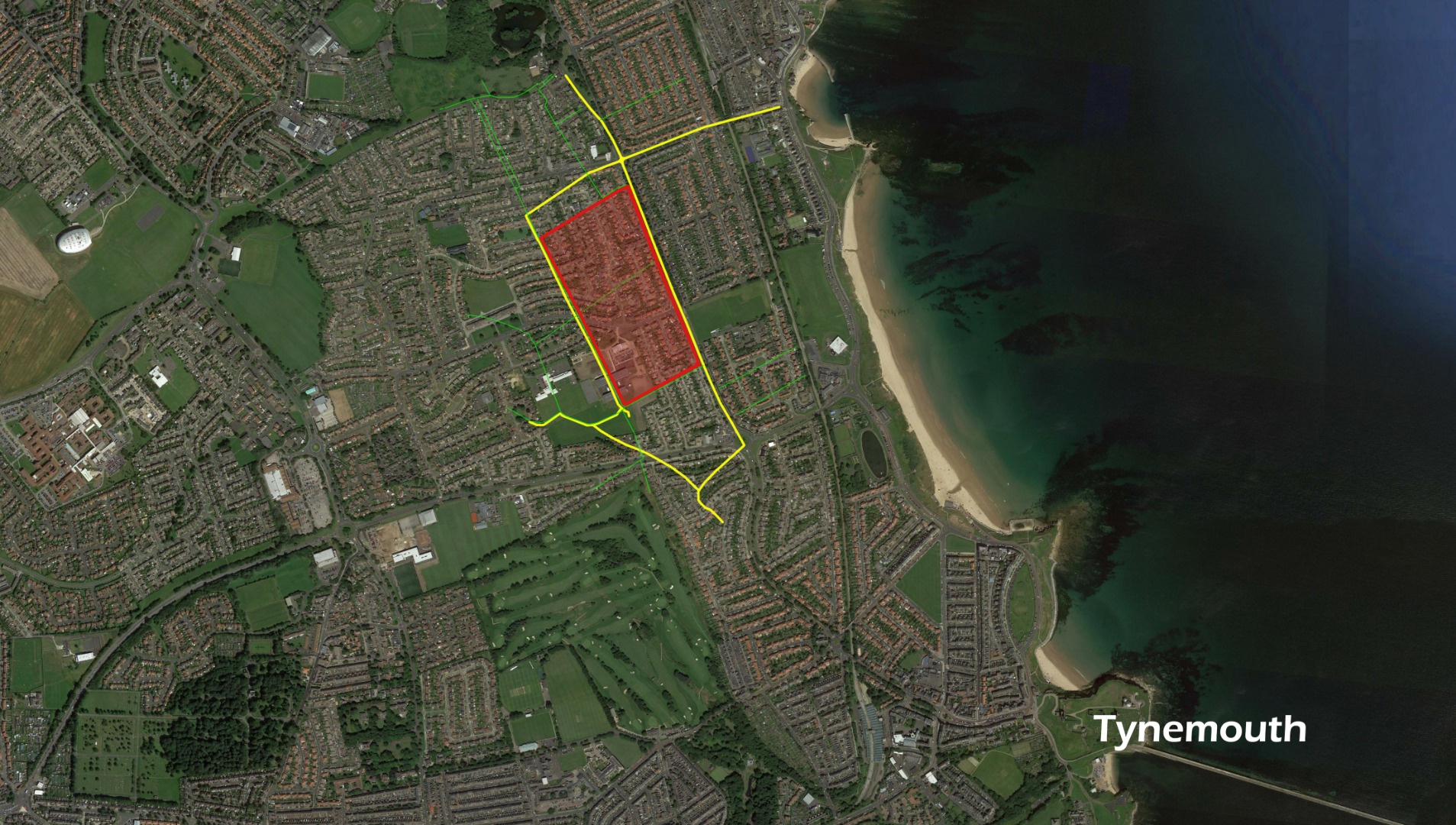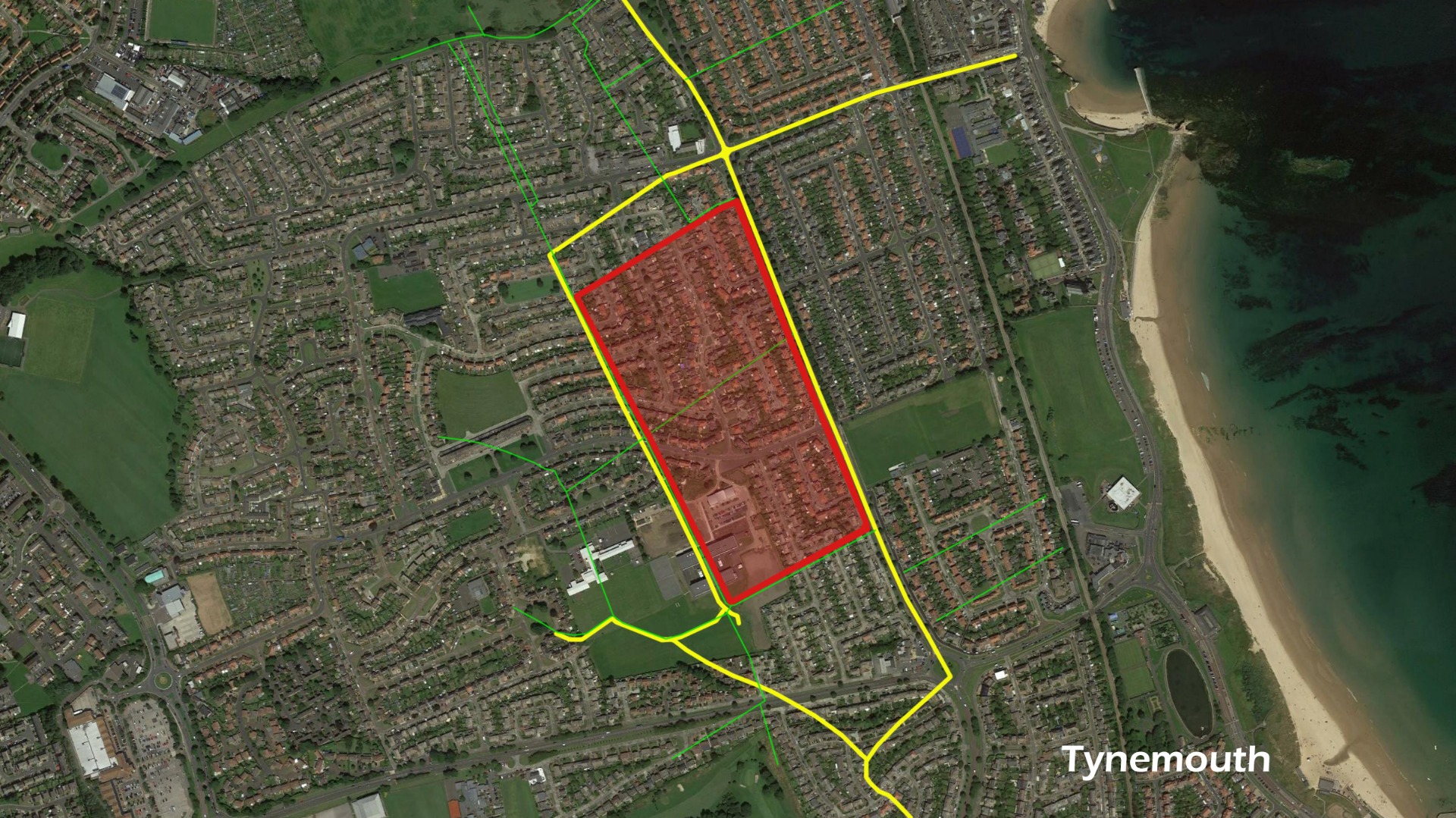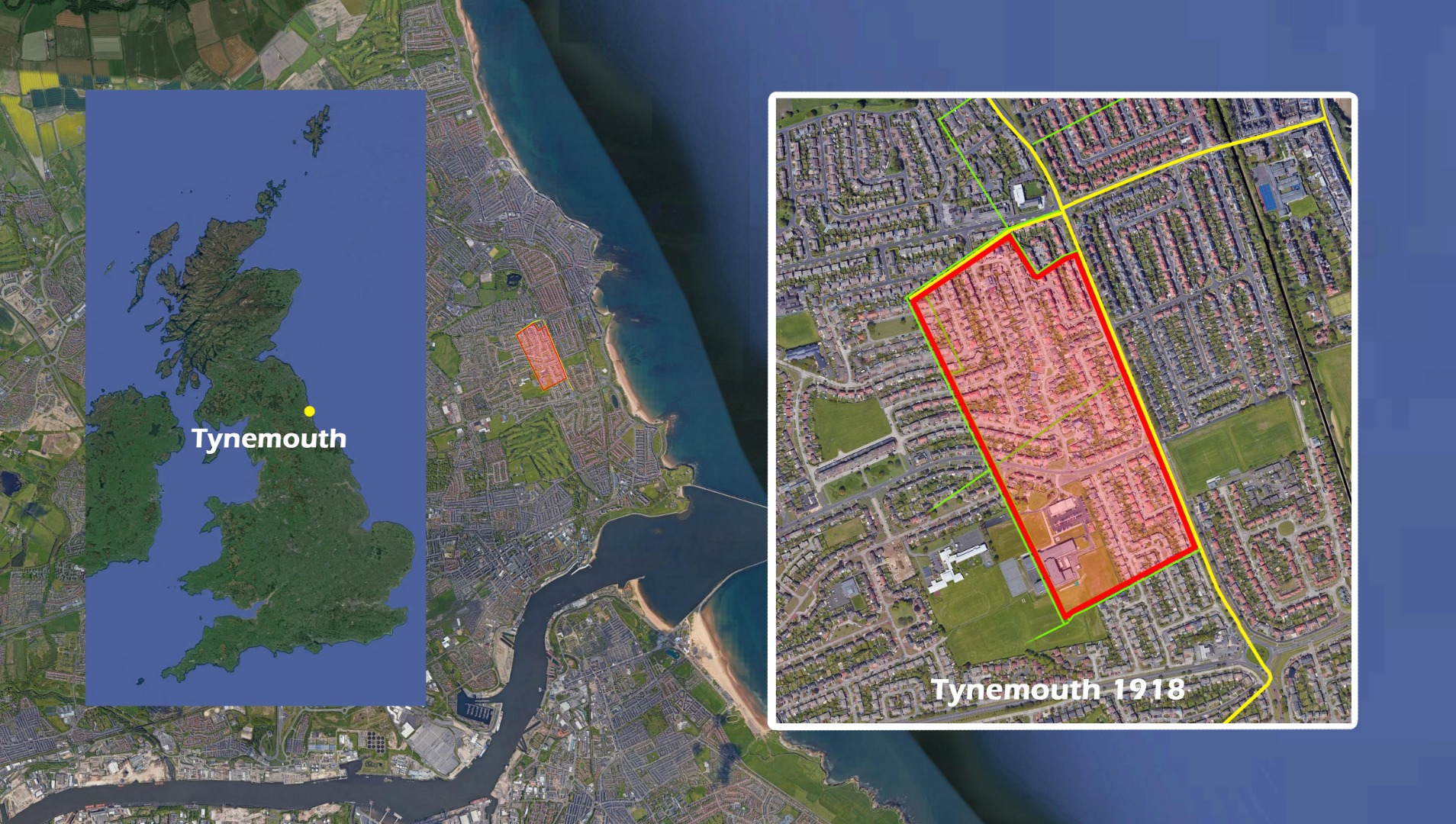Airfield search
Tynemouth

| Also known as: | Cullercoats / RAF Tynemouth / RFC Tynemouth / Tynemouth Aerodrome / Tynemouth Landing Ground |
| County: | Tyne and Wear |
| Current Status: | Housing (main position) / Leisure activity |
| Date: | December 1916 - 1919 |
| Current Use: | Disused |
| Used By: | RAF / RFC |
| Landing Surface Type(s): | Unpaved |
| Aircraft Role(s): | Fighter / Maritime patrol |
Various fighter types of No 36 Squadron had Tynemouth available to them as a Home Defence landing ground during World War One. The unit eventually replaced them with Bristol F2bs from the spring of 1918, these aircraft remaining in service after the end of fighting.
Prior to then in the early summer of 1918 Nos 507 and 508 (Special Duty) Flights of No 252 Squadron had begun mounting anti-submarine patrols with Airco DH6s, for which Tynemouth received some Bessonneau hangars, and lasted for a short while into 1919 before relocating at Killingholme as a cadre. The airfield has long become in the main a housing estate.
The following organisations are either based at, use and/or have at least potentially significant connections with the airfield (as at 01/09/2011):
- 5th Whitley Bay Scout Headquarters – where plaque sited
- Tynemouth Antiquarian & Historical Society
- Tynemouth Library
Main unit(s) present:
- No 36 Sqn
- No 252 Sqn
- No 507 (Special Duty) Flight
- No 508 (Special Duty) Flight
Photograph of the plaque at Tynemouth, installed in 2018. Courtesy of the 5th Whitley Bay Scout Group



Plans of Tynemouth. Courtesy of Ed Andrews

Plan of Tynemouth, 1918. Courtesy of Ed Andrews
| Home Defence Flight Station(s): |

